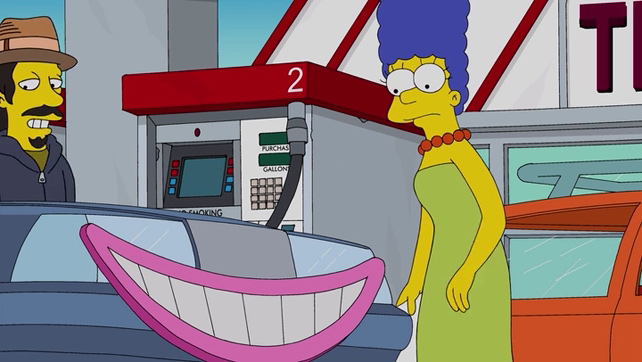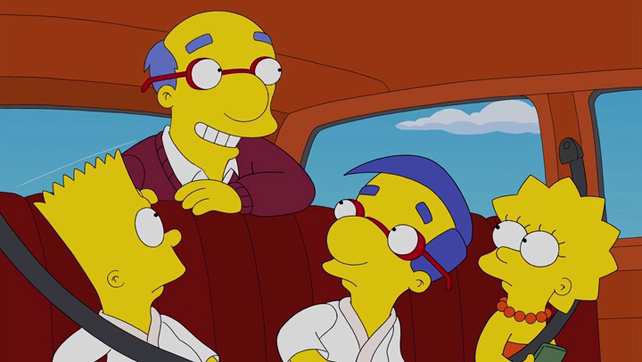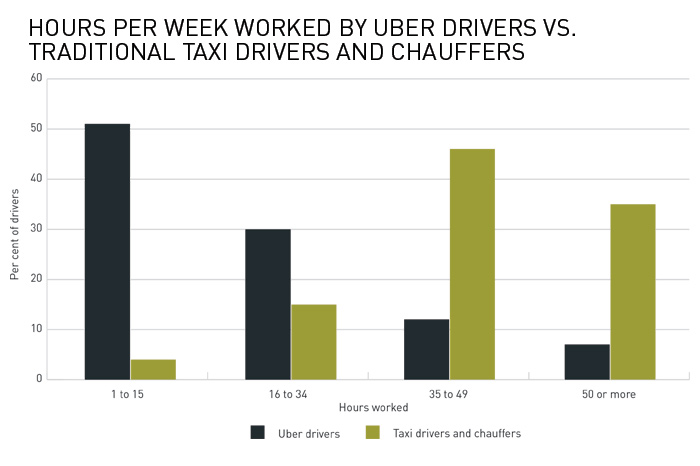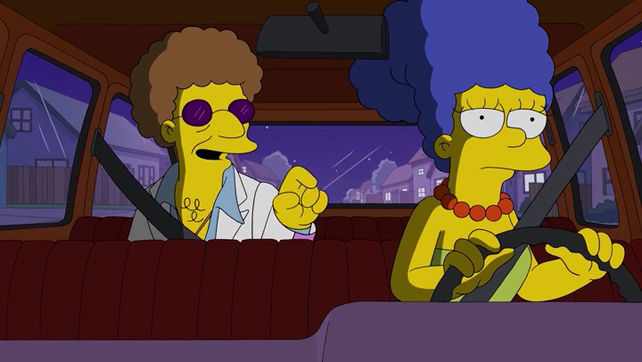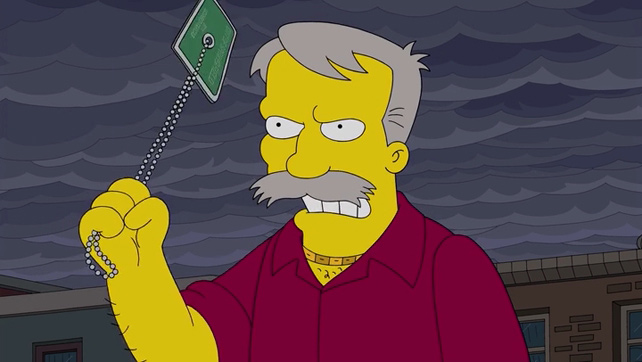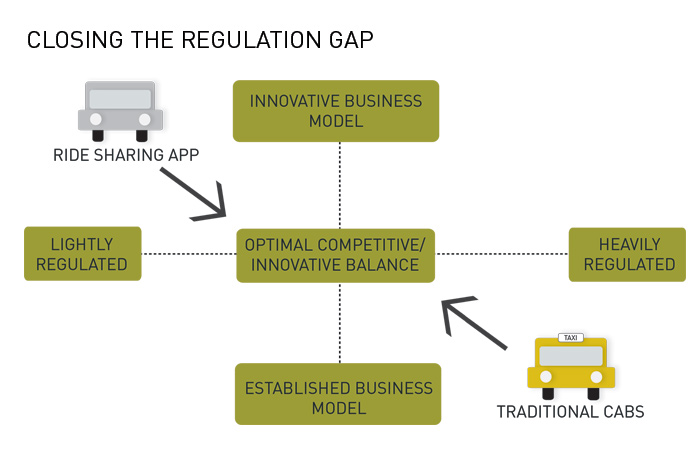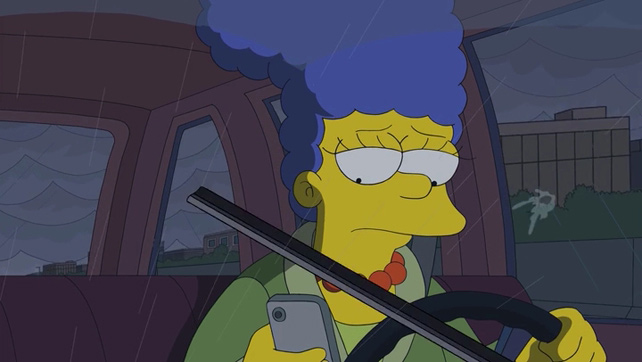June 9, 2015
Public Policy Lessons from The Simpsons #4
This post is part of an ongoing series where we explore policy lessons from The Simpsons. To catch up on previous posts, click here.
Don’t believe the Simpsons declinists. The show remains a font of wisdom even in its 26th season. In the February 2015 episode “My Fare Lady,” the show shed light on a challenge playing out today on the streets of our cities — how to approach peer-to-peer sharing economy transportation services. In telling this story, the show gives us yet more valuable lessons about public policy.
In this episode, Marge joins “Here to There,” which describes itself with self-indulgent Silicon Valley style as a “social media-enabled peer-to-peer ridesharing platform” that brings the “fair back to fares.” This opportunity for Marge was not about taking up a new profession, but a part-time income supplement while she shuttled Bart, Lisa and Maggie around town to sports, lessons and birthday parties. As Marge put it “at last! I’ll earn money for schlepping” — though her dream is only as ambitious as a new fridge with an icemaker.
As research done with Uber data shows, this perspective is actually quite common among Uber drivers. These peer-to-peer private drivers are much more likely to drive on a part-time basis than professional taxi or limo drivers.
From the consumer perspective, Marge’s services shows the best side of the sharing economy. The smartphone-enabled Simpson wagon proves to be a quite popular with local consumers. As a taxi driver (voiced by Christopher Lloyd) admires and laments, Marge is “prompt, courteous, and a joy to ride with.” This makes her a competitive threat for Springfield’s local cabbies, who complain that “these smart cars are cutting into our business. We used to get UBER amounts of work giving people LYFTS.” A recent report from the Technology Policy Institute used data from New York City and Chicago to show that this kind of competitive pressure from ridesharing services pressured taxis there to step up their customer service, leading to a reduction in complaints.
Marge’s experience also unearths the dark side of the sharing economy experience. The low-cost and high quality consumer experience comes at the expense of Marge’s well-being. Marge’s experience shifts from a flexible side business to a precarious and tiring self-employment. She finds herself catering to the whims of a cast of characters that includes Ol’ Gil, Dr. Nick, Groundskeeper Willie and Disco Stu. Ultimately, the final straw that leads to Marge leaving the business is a threat by the cartel of medallion-wielding taxi drivers to harm her if she doesn’t step away. The challenge of distinguishing between an entrepreneur and a low-wage worker being treated involuntarily as an independent contractor to skirt employment rules is one of the fundamental policy questions surrounding the growth of the sharing economy.
The episode also hints at the risk of regulatory arbitrage. The only question that Marge had to answer to earn her entry to the Here-to-There platform was whether she was over 23 years old and under 80. On the other hand, the taxi drivers are all licensed with official medallions, and presumably had to follow prescriptive rules to get those licenses. It is one thing if Marge and other sharing economy operators are getting business thanks to superior service, another if they’re able to undercut on price thanks to laxer regulations.
Governments need to find a way to set a level playing field. This doesn’t mean applying the old rules to the new businesses. That simply will not make sense for part-timers like Marge, and to hear it from the residents of Springfield, the old rules were not exactly guaranteeing clean, safe, service. Policymakers can look instead to the sharing economy for new approaches that go beyond the rules-based command and control mindset. For example, can governments make use of the reputational information that is tracked by sharing economy operators to see that Marge is a safe driver delivering good service, without forcing her to clear rigorous regulatory hurdles?
While Marge’s experiment with Here-to-There was short-lived, ridesharing platforms are emerging as a significant part of our transportation network. Governments will need to be more proactive and constructive if they are going to find a way to create a level playing field that encourages innovation and achieves policy objectives in the public interest.
More related to this topic
Author
Noah Zon
Release Date
Jun 9, 2015


